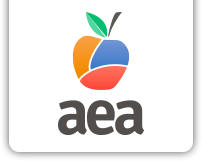
In April, it became clear that the Public School Employee insurance plan was facing a projected $70 million shortfall for the 2022 plan year. To address this, the State Board of Finance considered proposals that would mean a significant increase in insurance premiums and significant decrease in benefits. However, after months of advocacy, the premium spikes were averted handing public school educators a huge victory.
When the shortfall was announced, AEA leadership and staff sprang to action, working to determine the underlying causes and encouraging decision makers to keep educators top of mind while considering solutions. In April, the Association hosted a virtual and in-person townhall where members were able to ask questions and share concerns with government officials and worked to share educator perspective in statewide media publications. After hearing of the shortfall, the state legislature abolished the State and Public School Life and Health Insurance Board and shifted that responsibility to the State Board of Finance, which was weighing the untenable proposal. The state also hired consultants to study the system and make recommendations about how to make long-term adjustments.
“Educators risked their health over the last year to keep schools open and meet student needs during a global health crisis,” said AEA Executive Director Tracey-Ann Nelson. “It’s unthinkable that this devastating proposal is even on the table.”
Worse still, Nelson said the proposals under consideration won’t solve the underlying issue. Health care costs are rising at an annual rate of 7%, but there is no built-in state funding mechanism to anticipate this, resulting in the state contributing a smaller percentage of the plan’s cost each year. Our Public School employees already pay more than most surrounding states, and the government pays much less than all but one of our neighbors.
“The broken funding mechanism in our health insurance plan means the state hasn’t held up its end of the bargain,” she said. “Who’s left holding the bag? Without help from our lawmakers, it will be our friends and family who work with our children.”
AEA leaders, current and retired educators joined Senator Joyce Elliott ahead of an important vote June 17th to call on the Arkansas Legislative Council to reject massive health insurance rate hikes on public school employees.
Hope teacher Hosea Born, and Pulaski County Bookkeeper Audrey Nichols shared the harm it would cause educators if monthly insurance premiums increased by an astonishing 10% in the 2022 plan year. Donna Morey, Executive Director of the Arkansas Retired Teacher Association, shared concerns about the proposed 15-20% premium increases for retired educators on the plan.
In addition to the increases, educators would lose half of a wellness benefit that currently reduces premium costs. This would have meant the monthly contribution for a single employee on the classic plan would jump 45% from $71 to $103 each month.
The proposed increases in insurance premiums would have eroded the progress made in teacher pay this year, and driven educators who are not teachers out of the plan altogether. Further, the reduced pool would make the plan less financially secure and more expensive to operate while
robbing people of a key benefit that helps secure a stable workforce.
“Arkansas’s educators must have a seat at the table for decisions regarding their plan,” said AEA President Carol
Fleming. “It is imperative their health insurance plan be affordable and provide meaningful benefits.”
On Friday, June 18th, the Arkansas Legislative Council approved a request for $35M, which fell well short of the
needed $70M.
Senator Elliott called on her colleagues to prevent shifting the burden onto educators’ backs.
After a short-term investment, Nelson called on the state to create a sustainable funding mechanism that anticipates the annual increase in health care costs.
“The state announced a $1Billion surplus,” she said. “We need lawmakers to stand with educators and direct the government to use a small part of that surplus to do what is right for our school employees. At the same time, our state must fix the problem so school employees can afford decent insurance in the years to come.”
By July 7th, the Board of Finance recommended that the state send an additional $20 million to help offset the pending shortfall. This was on top of $20 million allocated during the 2021 legislative session and $35 million approved on June 17. Finally, on July 23, the Arkansas Legislative Council gave the proposal to fully fund the health insurance plan final approval which included no increase in health insurance premiums for active or retired educators.
However, it is important to note that while the health insurance premiums will not increase for the 2022 health insurance plan year, the $50 monthly wellness benefit will be reduced to $25 for participating insurance plan members.
AEA leadership has called on local school districts to work through Personnel Policy Committees to increase the district’s employee contribution by $25 to offset the reduction in the wellness benefit.
AEA created a toolkit for members to implement at the local level, available in the members only section of aeaonline.org. It includes an overview of the situation, information on your district’s current level of contribution, model policy proposals and justifications to be presented to your local school board.



